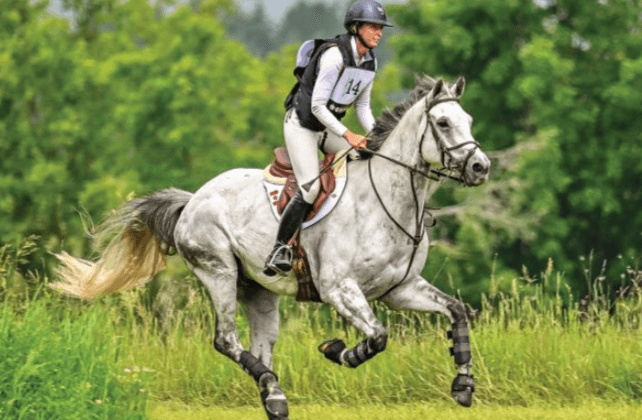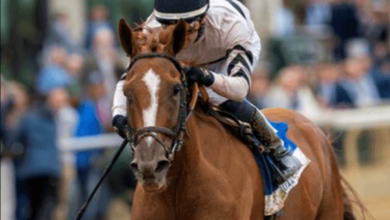How many hours do you spend training your horse each week for racing?

Introduction
Training a horse for racing is an intricate process that requires time, patience, and expertise. The amount of time spent training your horse each week can greatly influence its performance and well-being. This article explores how many hours you should dedicate to training your horse, effective training strategies, and the importance of balancing work and rest.
The Basics of Horse Racing Training
Horse racing training involves physical conditioning, skill development, and mental preparation. Each horse’s training regimen must be tailored to its specific needs and the demands of the racing discipline. Understanding these basics is the foundation for an effective training program.
Understanding Your Horse’s Needs
Every horse is unique, with different requirements based on breed, age, temperament, and prior training. Thoroughbreds, for example, may need a different approach compared to Quarter Horses. Recognizing your horse’s individual needs is crucial for creating an optimal training schedule.
Optimal Weekly Training Hours
A general guideline for training a racehorse is to dedicate between 10 to 20 hours per week. This includes a mix of riding, groundwork, and rest to keep the horse healthy and prevent injuries. The exact number can vary depending on the horse’s condition and the training goals.
Daily Training Sessions
Training sessions should be consistent and structured, typically lasting between 60 to 90 minutes each day. Each session should focus on different aspects of fitness and skill development, such as cardiovascular conditioning, speed work, or agility drills.
Incorporating Rest and Recovery
Rest is as important as the training itself. Horses need time to recover and build strength. Generally, one or two rest days per week are advisable to avoid overtraining and ensure the horse remains in peak condition.
Balancing Workouts
A balanced training regimen includes long, slow distance work for endurance, fast-paced intervals for speed, and skill drills for agility and technique. This variety keeps the horse engaged and reduces the risk of repetitive strain injuries.
Physical Conditioning
Cardiovascular fitness is essential for racehorses. Training should include trotting, cantering, and galloping to improve stamina and heart health. Gradually increasing the intensity and duration of these exercises is key to safe progression.
Skill Development Skill development is crucial for racehorses. This includes practicing starts, maintaining pace, and handling different track conditions. Training should also involve sessions on the starting gate to familiarize the horse with race day scenarios.
Mental Preparation Mental preparation is often overlooked but is vital for a horse’s performance. Training should include scenarios that mimic race conditions to help the horse stay calm and focused. Exposure to various environments, sounds, and situations is beneficial.
Nutrition and Hydration
Proper nutrition and hydration are critical components of a training regimen. A balanced diet rich in essential nutrients supports muscle development and overall health. Ensuring adequate hydration, especially during intense training, is crucial for performance and recovery.
Monitoring and Adjusting Training Plans
Regular monitoring and adjustments to the training plan are necessary. Track the horse’s performance, behavior, and any signs of fatigue or distress. Adjust the intensity, duration, or type of exercises based on the horse’s response to ensure continuous improvement.
Common Training Mistakes to Avoid Avoiding common mistakes can save time and prevent injuries. Overtraining, inconsistent schedules, and neglecting rest periods are pitfalls to watch out for. Gradually increasing training intensity helps prevent overloading the horse’s system.
Involving Professional Trainers For optimal results, consider involving professional trainers. They bring expertise and experience that can enhance the horse’s training program, ensuring it is systematic, goal-oriented, and safe.
Importance of Vet Check-Ups Regular veterinary check-ups are essential to monitor the horse’s health and address any issues promptly. A vet can provide insights into the horse’s physical condition and recommend adjustments to the training regimen.
Using Technology in Training
Advancements in technology offer tools that aid in training. Heart rate monitors, GPS tracking, and video analysis can provide valuable data to fine-tune training programs and accurately track progress.
Setting Realistic Goals Setting realistic and achievable goals is important for maintaining motivation and measuring progress. Whether it’s improving speed, endurance, or specific racing skills, having clear objectives helps structure the training effectively.
Training Young Horses Training young horses requires special attention. Start with basic groundwork before gradually introducing more intense exercises. Patience and consistency are key to building a strong foundation for their future racing career.
Seasonal Training Adjustment
Adjust training schedules according to seasons. Weather conditions, daylight hours, and track availability can influence training plans. Adapting to these changes ensures effective training year-round.
Case Study: Successful Training Regimens Examining successful training regimens can provide valuable insights. Reviewing strategies used by top trainers and their approach to balancing work and rest offers practical tips for optimizing your horse’s training.
FAQs
How long should a typical training session last for a racehorse? A typical training session should last between 60 to 90 minutes, focusing on different aspects of fitness and skill development.
How many rest days should a racehorse have each week? A racehorse should have one to two rest days each week to recover and prevent overtraining.
What type of exercises should be included in a racehorse’s training program? A racehorse’s training program should include a mix of cardiovascular conditioning, speed work, agility drills, and skill development exercises.
How important is nutrition in a racehorse’s training regimen? Nutrition is crucial as it supports muscle development, overall health, and recovery. A balanced diet rich in essential nutrients is vital for performance.
Should I involve a professional trainer in my horse’s training program? Involving a professional trainer can enhance the training program’s effectiveness due to their expertise and experience.
How do I monitor my horse’s progress during training? Monitoring your horse’s progress can be done through regular performance assessments, behavior observation, and veterinary check-ups.
Conclusion
Training a horse for racing demands a well-structured and balanced approach. By dedicating 10 to 20 hours per week, incorporating varied exercises, ensuring proper nutrition, and allowing for adequate rest, you can optimize your horse’s performance on the track. Regular monitoring and adjustments, along with professional guidance, further enhance the effectiveness of the training regimen. With dedication and the right strategies, your horse can reach its full potential and achieve racing success.





